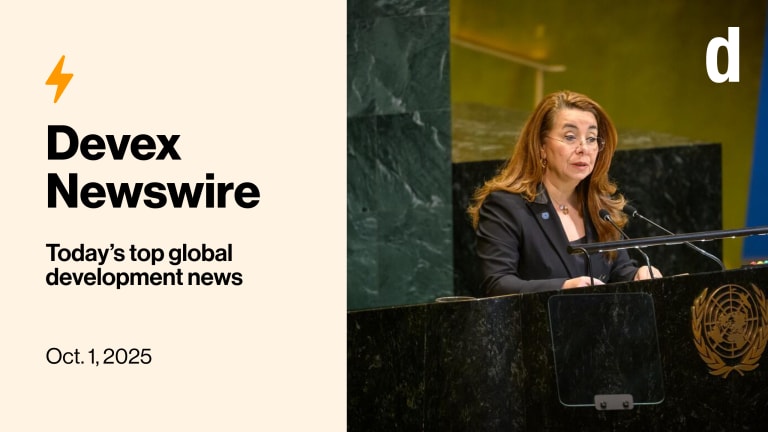
Over two years before the Millennium Development Goals deadline, the debate over the post-2015 framework marks another milestone.
World leaders agreed on Wednesday to host a global summit in September 2015 to set a new set of goals to combat poverty and encourage sustainable development. The commitment was enshrined in an ”outcome document” adopted at a special event at the U.N. General Assembly’s 68th session in New York.
The document — whose purpose is to “review progress made towards the achievement of the MDGs and chart the way forward” — has taken into account the concerns and priorities of the people via the U.N. My World Survey to start crafting the next set of goals, balancing the three key elements of sustainable development — providing economic transformation and opportunity to lift people out of poverty, advancing social justice and protecting the environment — already included in the report of the U.N. High-Level Panel on Post-2015 Development Agenda presented to Secretary-General Ban Ki-moon last May.
It acknowledges that “substantial advances” had been made in meeting several MDGs, but participants are worried about the “unevenness and gaps in achievement and the immense challenges that remain” just two years before the deadline, especially in the least developed countries that are most off-track from the goals. The outcome document says these nations will be prioritized over the rest in efforts to accelerate progress.
The document also highlights the central role of country ownership for development and of the private sector, the latter through public-private partnerships as well as responsible business practices, and, in a gesture to the aid community, calls on donors to abide by their promise of scaling up official development assistance to 0.7 percent of their gross national income by 2015.
Post-2015 agenda
At the same time, efforts are accelerated to meet the MDGs in time for the deadline, governments commit to “craft a strong post-2025 development agenda, which will build on the foundations laid by the MDGs, complete the unfinished business and respond to new challenges.
But unlike the pledge made in 2000, the commitment will now involve all nations, rich and poor, as the new focus is a set of less specific and more flexible targets, as European Union development commissioner Andris Piebalgs told Devex on Monday. The EU seems to have been able to include certain principles that it has always championed, like mutual accountability, or poor countries taking more responsibility for their development rather than just waiting for aid.
“This coherent approach involves working towards a single framework and set of goals — universal in nature and applicable to all countries — while taking account of differing national circumstances and respecting national policies and priorities,” notes the document. This means that wealthy nations will not only fund the development of poor ones but also have goals to accomplish.
The open working group on Sustainable Development Goals set up after the Rio+20 conference in 2012 now has a year to report back with a set of goals in a synthesis report to the U.N. secretary-general before the 69th session of the General Assembly in September 2014, after which a final draft will be prepared for the 2015 summit.
The outcome document was generally well-received by the aid community, although the Beyond 2015 campaign regretted that it “lacks the ambition needed to make that change” and called for participants to listen to the people to avoid “quick-fix solutions [that] will be neither effective, sustainable nor legitimate” for post-2015.
You can follow Devex on Twitter and Facebook, and find comprehensive coverage of New York #globaldev Week here.
Read more development aid news online, and subscribe to The Development Newswire to receive top international development headlines from the world’s leading donors, news sources and opinion leaders — emailed to you FREE every business day.
See more:
Search for articles
Most Read
- 1
- 2
- 3
- 4
- 5








